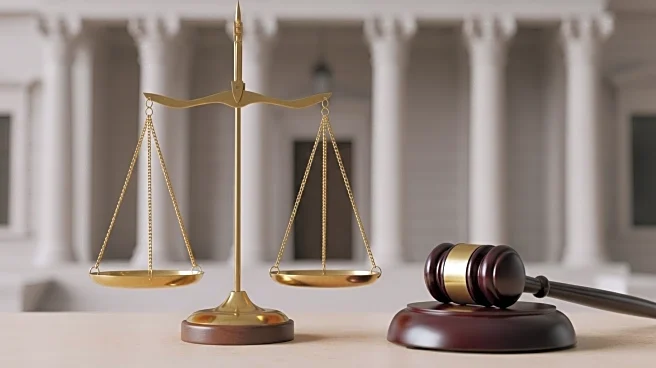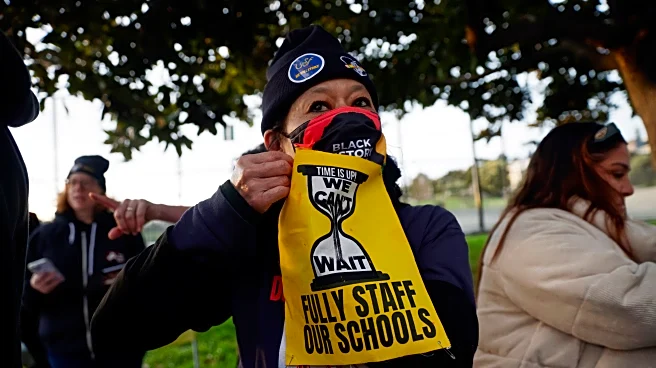What is the story about?
What's Happening?
Tang Renjian, China's former Minister of Agriculture and Rural Affairs, has been sentenced to death with a reprieve for bribery by the Changchun Intermediate People's Court in Jilin province. According to state-run news agency Xinhua, Tang accepted bribes in the form of cash and property valued at over 268 million yuan ($37.6 million) during his tenure in various positions from 2007 to 2024. The court suspended his death sentence for two years, acknowledging his confession to the crimes. Tang was expelled from the Communist Party in November 2024, following an investigation by the anti-graft watchdog. This investigation was part of a broader anti-corruption campaign initiated by President Xi Jinping in 2020, targeting China's domestic security apparatus.
Why It's Important?
The sentencing of Tang Renjian underscores the Chinese government's ongoing efforts to combat corruption within its ranks, a campaign that has been a hallmark of President Xi Jinping's administration. Corruption is considered a significant threat to the stability and integrity of the Communist Party, and Xi has emphasized the need for absolute loyalty and purity among officials. The swift investigation and sentencing of Tang, along with similar actions against other high-ranking officials, reflect the seriousness with which the Chinese government is addressing these issues. This development may impact China's political landscape by reinforcing the government's commitment to transparency and accountability, potentially affecting international perceptions and relations.
What's Next?
The sentencing of Tang Renjian may lead to further investigations and purges within the Chinese government as part of President Xi Jinping's anti-corruption campaign. The focus on ensuring loyalty and reliability among officials could result in additional scrutiny of other high-ranking members of the Communist Party. This could lead to more resignations or expulsions, as the government seeks to maintain its image and authority both domestically and internationally. The ongoing campaign may also influence China's economic policies, as efforts to eliminate corruption could impact business practices and foreign investments.
Beyond the Headlines
The case of Tang Renjian highlights the ethical and legal challenges faced by the Chinese government in its fight against corruption. The emphasis on loyalty and purity among officials raises questions about the balance between political control and individual rights within the Communist Party. The broader implications of this campaign may include shifts in China's governance model, as the government seeks to strengthen its institutional integrity while maintaining its centralized power structure. The long-term effects of these purges could influence China's cultural and political dynamics, potentially affecting its role on the global stage.

















